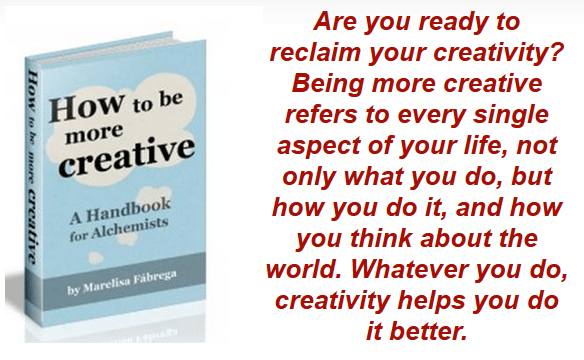
A garden is a great metaphor for life.
I love gardens. Although I currently live in an apartment building, I grew up in a house—in Costa Rica–that was surrounded by a large garden. The garden had mango trees, blackberry shrubs, rows of corn stalks, a lemon tree, and all kinds of flowers. In addition, my father had hired a landscape architect who had created a tiny creek complete with a waterfall and a small pond.
 I spent many hours out in that garden, climbing trees, picking fruit, playing with my brother and sister, lying on the grass, hiding when I had misbehaved, and chasing our German Shepherd dogs around. Today I was thinking about that garden and it occurred to me that gardening is a great metaphor for life. After all, nature is a great teacher and there are many life lessons that can be learned by spending time out in the natural world.
I spent many hours out in that garden, climbing trees, picking fruit, playing with my brother and sister, lying on the grass, hiding when I had misbehaved, and chasing our German Shepherd dogs around. Today I was thinking about that garden and it occurred to me that gardening is a great metaphor for life. After all, nature is a great teacher and there are many life lessons that can be learned by spending time out in the natural world.
I sat down to write and came up with this post on the garden as a metaphor for life. Below you’ll find 10 life lessons you can learn from gardening.
1. Have a Vision for Your Garden.
When you’re going to plant a garden you have to create a vision for it. You don’t just grab whatever seeds you can get your hands on, throw them around willy-nilly, and hope for the best. Instead, you have to ask yourself what type of garden you want, the purpose you want your garden to serve, what you want to grow in your garden, and how you want your garden laid out.
Just as you should have a vision for your garden, you should have a vision for your life. What kind of life do you want to have? What’s your life’s mission? What do you want to achieve? What do you want to do, have, and experience?
Imagine walking out your back door into a garden that doesn’t look anything like your dream garden. Maybe it’s overgrown, it’s decorated with garden paraphernalia you can’t stand to look at, it has no fruits or vegetables, and you can only find one or two of your favorite flowers. That’s what your life will look like if you don’t create a vision for it.
2. You Need to Prioritize.
When you’re planning your garden you can start by creating a wish list of everything you want to grow there: tomatoes; geraniums; pumpkins, watermelons, strawberries, green beans, sweet corn, cucumbers, forget-me-not flowers, zucchini, sunflowers, and on and on.
However, you then need to trim down your list to the plants that you feel are the most important for you to grow. Keep in mind that your garden is a limited space, and you can’t possibly grow everything at once. If you try, you’ll end up with a huge mess that will soon be unmanageable.
In much the same way, when you’re planning your dream life you can start out by creating a list of everything you want to do. Then, you need to prioritize your list and get to work on the things you want most. After all, you can’t train for a marathon, learn to play an instrument, start a business, and write a novel all at once.
Plant the seeds that will bear the fruit that are most important to you. Then, the next year–if you wish–, you can try planting different seeds. You just can’t plant too many things at the same time.
3. You Need Good Soil.
Whatever it is that you decide to plant in your garden, it won’t grow well unless you have healthy soil. A gardener spends a lot of time, energy, and expense to improve the soil of their garden and create a strong, rich, durable soil.
They do this by adding compost, manure, and other nutrients to the soil in order to create an environment that is conducive to vibrant growth. Creating a truly great soil can take years. But by laying down this strong foundation it will be much more likely that the garden will yield a beautiful, strong crop.
In the same way, you need to build a strong foundation for your dreams. You achieve this by doing the following:
- Getting the education that you need and learning the skills that will allow you to achieve your goals.
- Creating spatial order – decluttering and getting organized.
- Getting your financial life in order – creating and following a budget, getting out of debt, and starting an emergency fund.
- Creating cornerstone habits: exercising, eating clean, getting enough sleep, and meditating.
When you’ve made your soil fertile—when you’ve laid out a strong foundation for your dreams–you can dramatically improve its productivity.
4. You Reap What You Sow.
Gardeners know that they reap what they sow. If they want tomatoes, they plant tomato seeds. They don’t plant hemlock seeds and then wonder why there’s a poisonous plant growing in their garden instead of delicious, bright red tomatoes.
Many people take a look at their lives, they don’t like what they see, and they wonder what went wrong. The answer is that they planted the wrong seeds. Look at the following:
- Instead of eating well and exercising, they overate and watched too much TV.
- Instead of spending time bonding with their spouse, they spent too many hours at the office.
- Instead of saving and investing their money, they bought things they didn’t need to impress other people.
When I was in law school I had a friend who came from a very humble background. Nonetheless, he was very bright, he was studious, and he was constantly looking for ways to better himself. That’s how he had made his way into one of the top law schools in the United States. His brother, on the other hand, was a high school drop-out who was always looking for an easy way out.
Today my friend is a highly successful lawyer, while his brother has been in trouble with the law a few times and can barely make ends meet. It’s clear that since each brother planted different seeds, they each got very different results.
Ask yourself what you want, and then make sure that you’re planting the seeds that will get you those results.
5. Assess Your Garden’s Conditions.
Different plants need different environments to thrive. How well a plant will do in your garden depends on many different factors, including the following:
- Climate and temperature.
- Amount of sunlight.
- Amount of water.
- The pH levels of the soil – how acid or alkaline the soil is.
- Exposure to wind.
- The other plants and animals in the environment.
In life, when you set goals you need to take into account things such as the following:
- Your strengths.
- Your weaknesses.
- Your likes and dislikes.
- Your character and temperament.
- The people who surround you.
Depending on what these factors are, some goals will be much easier for you to achieve than others. So make sure that you choose goals that are a good fit for you.
In addition, the environment that you find yourself in will have an enormous impact on whether or not you’ll be able to achieve your goals. I recently read an anecdote about a woman who had gorgeous yellow Texas climbing roses that grew up along a fence. Her neighbors had a young pine tree.
One year the pine tree had grown large enough to cast a shadow over the roses for most of the day. As a result, the roses withered and died. The woman spent three or four summers trying to salvage the roses, to no avail. The circumstances in her garden were now such that roses couldn’t possibly thrive there, no matter what she did.
This anecdote made me think of the time that I spent working at the Panama Canal Authority—the Panamanian government agency that runs the Panama Canal. It’s an incredibly bureaucratic entity, but I simply didn’t fully comprehend that while I was there.
I would work overtime; take responsibility for projects that were not part of my position description; take the courses—on my own time—that were important to management; try to institute change; and so on. In the end, I had nothing to show for my efforts. The environment I was in was simply not conducive to change or improvement.
When setting your goals, take inventory of who you are, and analyze the environment and the circumstances you find yourself in.
6. Build a Fence Around Your Garden.
If you want a pest-free garden, you need to build a fence around it. The last thing you want is to look out at your garden and spot a furry creature munching away at your carefully planted crops. In much the same way, you should build a fence around your goals. That is, set boundaries.
Here’s what you should do:
- Keep naysayers and toxic people at arm’s length.
- Say “no” to unwanted commitments.
- Block out time to work on your goals and refuse to allow interruptions or distractions to take your attention away from the task at hand.
7. A Garden Needs Constant Tending.
After you’ve prepared your soil and planted your seeds, there’s still lots of work to do in your garden. A garden requires constant care and attention. You need to do all of the following:
- Set a watering schedule.
- Pull weeds regularly, or crabgrass and all kinds of unwelcome weeds will sprout up.
- Prune trees, shrubs, and bushes—cut away dead or overgrown branches or stems.
- Add fertilizer.
- Check to see how the plants are growing and take corrective action if necessary.
Just as a garden needs constant tending, so do your goals and dreams. Make sure that you take the action necessary to achieve your goals on a continuous basis. It’s the only way you’ll get your goals to bear fruit.
As an example, suppose that your goal is to write a novel. You have to do all of the following:
- Set a writing schedule and stick to it.
- Beware of “weeds” such as mindless internet surfing and other forms of procrastination; self-doubt; perfectionism; and so on. When you come across one of these weeds, immediately pull it out.
- Prune away tasks and projects that are not as important to you as writing a novel.
- If you need some inspiration, read a book on writing or read writing quotes.
- Ask someone you trust to read each chapter as you finish it and give you constructive feedback that you can apply to make your novel even better.
Devote one-hour-a-day to tending your most important goal so that it can grow nice and strong.
8. Have Patience and Trust the Process.
There’s a quote by John Wenger that states, “You can’t pull on the plants and expect them to grow faster.” That is, you can’t force a seed to grow faster than nature intended it to, and you can’t make trees bear fruit on demand.
All you can do is create the best possible conditions in your garden, plant the right seeds, and give those seeds the care and attention they need. Then, trust that nature will take care of the rest.
When it comes to your goals, you also have to be patient and trust the process. Maybe you want your blog to have 10,000 subscribers; or you want your business to generate a million dollars in sales; or there’s a particular award that you want to win. You can’t force these things to happen.
All you can do is take the action that is most likely to produce the results that you want, and then patiently await the results.
9. Learn to Deal with Things Outside of Your Control
Gardeners know that sometimes it doesn’t rain as much as it should, so the plants don’t get the amount of water that they need and their growth is stunted or they die. Or it rains too much and the roots drown. In addition, there are many other things which are not within their control that can damage the garden—the climate, diseases, a bug infestation, and so on.
In much the same way, as you’re working on your goals it’s almost certain that you’ll run into obstacles and that you’ll suffer some unforeseen setbacks. That’s just the way it is. Be flexible and look for ways to keep moving forward.
10. Reap Your Harvest.
After all your hard work, your garden should start producing a bountiful crop, ready to be picked. Similarly, if properly executed, a good life plan will produce bountiful rewards: you’ll have a career you love, financial security, good relationships, fond memories of trips and adventures, and so on.
On the other hand, if the harvest wasn’t as bountiful as you would have liked it to be, or if some plants failed to bear fruit, analyze went wrong. Then, come up with a different strategy and try again!
Conclusion
So, what do you want your garden to look like? What seeds will you plant? What steps will you take to tend your garden? Live your best life by being a good life gardener.





Related Posts:
- 13 Quick Ways to Improve Your Mood
- Three Effective Methods For Making Better Decisions
- 10 Things to Do When life Throws You a Curveball
- 21 Ways to Create and Maintain a Positive Attitude
Did you enjoy this article? Subscribe to “Daring to Live Fully” by clicking here and get free updates.




 Marelisa Fabrega is a lawyer and entrepreneur. She holds a Bachelor of Science in Business Administration from Georgetown University in Washington, D.C., as well as a Juris Doctor from the Georgetown University Law Center. You can learn more about her
Marelisa Fabrega is a lawyer and entrepreneur. She holds a Bachelor of Science in Business Administration from Georgetown University in Washington, D.C., as well as a Juris Doctor from the Georgetown University Law Center. You can learn more about her 





